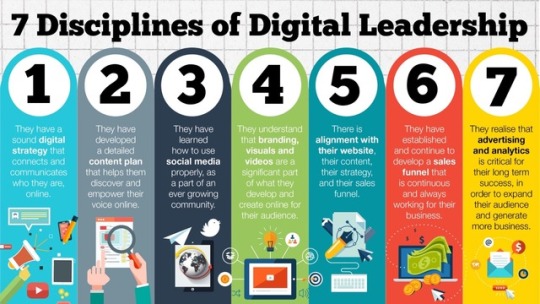Text
WTF is 4IR?

You've all heard it. 4IR is here. Every business magazine, newspaper, or book is talking about it. You hear about robotics, artificial intelligence (AI), nanotechnology, quantum computing, biotechnology, The Internet of Things, 3D printing, and autonomous vehicles. You have only the faintest idea about them. Terminologies are familiar for you've heard them a lot, but you have absolutely no idea how exactly they're applicable for you and your business. Your head is spinning. You're not alone: The whole world is spinning right now.
What is 4IR? You can't define it. You Google it. Then you're bombarded with a series of extensive and technical explanations about it. No one seems to have a simple and understandable answer to it. Why? You guessed it right. No one has a simple and understandable answer because there is no simple and understandable answer to it. Again, why? That's simple: No one has yet figured it out enough to give a simple and understandable answer.
Why do we need 4IR? We don't. It just is happening and will continue to happen — whether or not you approve of it, deny it, go against it, discredit it, hate it, or close your eyes on it won't matter. What matters is the fact that our leaders in business have invested enough in it, created products that change our daily lives, patterns, and habits, and put them into practice in every aspect of our lives — from medicine to computer games to ATMs to mobile phones to social media platforms to automobiles to shopping malls. You've already been using and even enjoying them for many years; you just didn't put a name on it. Well, now you do.
What's going to happen with your business or organisation in the 4IR era? Just think back on 3IR (the Third Industrial Revolution or the Digital Revolution — and yes, those crazy years of you had begun using the Internet for the first time with that crazy, scratch noise connecting your computer to AOL or MySpace were in the 3IR era). What happened to those who couldn't adapt to the changing current of that time? They're no longer here. Archaic, dinosaur-ous, and very dead.
But one thing is for sure. 4IR, just like 1IR, 2IR, and 3IR, is a human innovation evolution. And more than any industrial revolutions in the past, 4IR will focus more on our ability to imagine, fuse, revolutionise, innovate, and create. From small things in our kitchen to big things and beyond.
This doesn't take for you to go to MIT to study AI or nanotechnology just as other creative and innovative people in the past didn't have to reinvent wheels and light bulbs to be creative and innovative in their times.
It takes a single humanistic perspective or insight into the things in our lives that we've taken or accepted as normal, obvious, and absolute rules. Status quo is the absolute wrong answer in 4IR. Obviousness has no room in 4IR. There is no such thing as normal and absolute anymore.
In fact, 4IR can be a beautiful time for all of us. Everything we've imagined until now can have a breath of possibility of becoming real. Your business can be a vehicle of changes in this era.
The real questions are these: Are our imaginations and dreams beautiful enough to become real? Can they change our world for better? Can everyone in the world benefit from the changes they create? Can we preserve our humanity and its ideals through them?
Let's ask them together. A brave new world begins with brave new questions.

0 notes
Text
Want to be a Cool Boss? Think Again.

One of the ridiculous advice given on management and leadership I have encountered while observing and advising different companies and organisations in Turkey for strategy is that leaders and managers should build good relationship with their employees by being more friendly with them through doing social activities together, engaging in chitchats, and spending more time with them outside work. This kind of leaders is being considered as cool bosses. Sure, keep doing that: You will perhaps win a popularity contest, but that's pretty much it.
It's understandable given that Turkey is steeply ranked among all the OECD countries within a group of countries in which work environments are hierarchal, authoritarian, and bureaucratic. And these bosses with personal touches and flairs might seem as a fresh air of newness and change. Well, they really are not.
The real problems of a hierarchal, authoritarian, and bureaucratic company or organisation are the cancerous symptoms of ineffectiveness, unproductiveness, and impracticality. And how do you overcome these issues? By being honest in seeing problems, constructive in criticism, open to new ideas, seeking practical solutions even at the risk of going against old traditions and habits, and communicating with each other to improve through feedbacks, coaching, delegating, and being responsible.
A recent article in the Harvard Business Review points this out clearly: Small talks with your employees do not improve your relationship with them nor do they make your company effective and better. And above all, your employees don't want them, either (and no, don't ask them this for you will never hear straight answers from them).
Try to be a good boss, not a cool boss. Give feedbacks instead of small talks, reward them instead of kissing their asses, listen to them hard and care about their ideas and feedbacks instead of socialising with them. That's what makes your company innovative and grow. And above all, that's the kind of bosses your employees love and respect.

0 notes
Quote
How vain it is to sit down to write when you have not stood up to live.
Henry David Thoreau. Journals, 1838-1859. 19 August 1851.
0 notes
Quote
People follow true leaders voluntarily. They don't need to be bribed, threatened, coerced, manipulated, or forced to do so.
.
0 notes
Link
“Looking to leave. Employees at large companies who perceive bias on at least two dimensions are 60% more likely to have looked for another job while at work in the past six months, and 3.1 times as likely to say they intend to leave their current company within a year. This has high costs for companies, since losing employees is expensive. Direct replacement costs can reach 50%-60% of annual salary, and total costs from turnover range from 90% to 200% of annual salary.“
0 notes
Quote
Those who 'abjure' violence can do so only because others are committing violence on their behalf.
George Orwell. Notes on Nationalism.
0 notes
Text
Communication and Leadership
Not everything about leadership is communication, but communication is a true and clear indication of what kind of leadership there really is. And the Trump White House exemplifies exactly what one shouldn’t do as a leader in communication. Here are some lessons we can learn from Trump:
1. Trump never accepts full responsibility for what’s wrong. A true leader accepts full — not partial, not the majority, but full, 100% — responsibility for what’s wrong in the organisation he leads.
2. Trump is always the quickest to take all the credits for any accomplishments. A true leader acknowledges others first and never boasts of his works.
3. Trump always blames others — never himself — when things go wrong and always have malicious gossips about those he works with behind their backs. A true leader blames himself first and never gossips about those he works with.
4. Trump always puts his personal interests and business before others’ or even America’s. A true leader puts the interests and business of his employees and organisation before his own.
5. Trump becomes petty, vindictive, argumentative, resentful, dismissive, and reactionary when someone makes any criticism of him. A true leader humbly listens to criticism and uses the criticism to better himself.
6. Trump is always busy with others’ responsibilities but is never busy with his own. A true leader understands that he is a leader and does what a leader should do — doing the things that others in the organisation cannot do.
7. Trump always comes up with unrealistic goals and brings in ridiculous and unqualified people to do those unrealistic goals. A true leader never creates unrealistic goals for his organisation and never hires unqualified buffoons and clowns.
8. Trump is emotionally unstable, and his decisions change dramatically based on his mood swings. A true leader is consistent, stable, and dependable — the true north of the organisation he leads.
9. Trump always creates favourites and partitions in the White House and the government. A true leader unites.
10. Trump always lies. A true leader never lies. He may from time to time break his promises for the good of his organisation after much analysation and deliberating, but he never never never lies. He is transparent, principled, and clear about all his doings from finances to administration.
11. Trump is all talk but no action. A true leader communicates with his action. A true leader communicates with the result of his action.

0 notes
Link
“Our study confirms that a firm’s investments in its workers can improve worker welfare while contributing measurably to the bottom line. This dual benefit can be seen directly in the lives of the workers themselves. For example, Prabha, a 43-year-old widow from Bihar, was psychologically distressed and economically constrained after the death of her husband. She signed on as a low-level machine operator at a Bangalore factory in 2012, but working in the formal sector for the first time was fraught with challenges. She often felt too intimidated to address her supervisors if she encountered a problem with her work, and would bring family members along when she had to ask for time off. Today she exudes confidence on the factory floor, participates in group discussions at work, thinks positively, and saves for retirement. She attributes these changes to the PACE training, and her work reflects this transformation. She is happier now. And her managers are, too.“
0 notes
Photo
... and is the same God who had abandoned millions of Rwandans, Bosnian Muslims, Syrians, Libyans, and Palestinians in the hands of genocidal thugs and did nothing.

35 notes
·
View notes
Quote
Venezuela is a prime example that, when it comes down to dictatorship, there is no left or right for dictatorship is of self-interest then of self-preservation even above national interests or ideologies.
.
0 notes
Quote
Never leave questions unanswered; never forget unanswered questions.
.
0 notes
Photo

Being sceptical. Well, that’s my job.
0 notes
Quote
There is no need to strive to prove yourself to someone who doubts or questions your contribution to and worth in a company. Often these people are so short-sighted and too callous to listen to your strategies and long term plans to truly benefit your company, but later when they're cash-strapped, they come to you and dare to make demands and accusations, denying everything they had done and making you repeat yourself to them. You can't work with the leaders who have selective listening. The leaders with selective-listening always dodge their responsibilities and deny their mistakes. It's time to go and do it yourself. Showing them how it's being done and making them realise that there is nothing they can do about it is the only way you can make them listen to you. Well, by then, it's too fucking late anyway. If you think this is too much, think how they brought Steve Jobs back to Apple. Walk out: sometimes, it is the best communication for stupid leaders.
.
0 notes
Quote
If your actions inspire others to dream more, learn more, do more, and become more, you are a leader.
John Quincy Adams, the 6th President of the United States of America
0 notes
Quote
Leadership is inspiration. As a leader of an organisation or a company, there is one critical question to ask: "Do I inspire those I lead?" It will tell you exactly where you are and how you're doing with what you do at where you are. Because, in inspiration, everything that is essential for leadership: influence, teamwork, communication, decision, management, contribution, vision, ethic, motivation, and responsibility.
.
0 notes
Photo

Digital leadership
0 notes
Quote
The biggest threat to your company's communications strategy is often the leader of your company.
.
0 notes